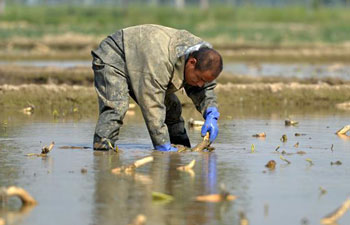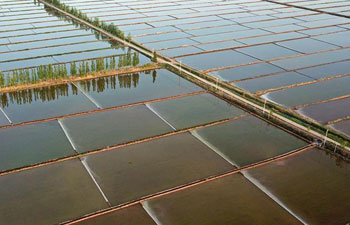CHICAGO, May 14 (Xinhua) -- Researchers at the University of Illinois (UI) have isolated a protein supercomplex from a bacterial membrane that generates a voltage across the bacterial membrane.
The voltage is used to make ATP, a key energy currency of life, a news release posted on the UI website Monday said.
Typically, an enzyme passes an electron on during a random collision with another enzyme. UI researchers found that in some conditions, nature eliminates the need for random collisions by sticking the enzymes together to form a "supercomplex." Each part of the supercomplex can generate a voltage, but all parts must function in sequence.
"It makes sense that they will function as a single unit to make sure the electron transport is rapid and the electrons end up where they belong," said Robert Gennis, a UI professor emeritus of biochemistry who led the research.
Rather than relying on detergents to extract the proteins from the membrane, as is typically done in such experiments, the researchers tried an industrial polymer, a kind that plastics are made from. Using this polymer, they extracted and isolated the supercomplex in a single, rapid step. The process embedded the supercomplex in a small disc of membrane shaped like a coin.
Then they used cryo-electron microscopy to determine the configuration of the supercomplex components.
The new findings, published in the journal Nature, will be a guide to the future efforts in obtaining the atomic structures of large membrane protein supercomplexes.

















